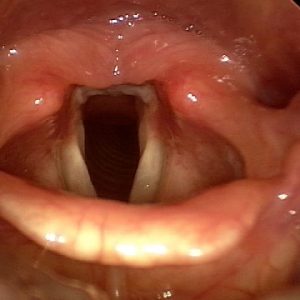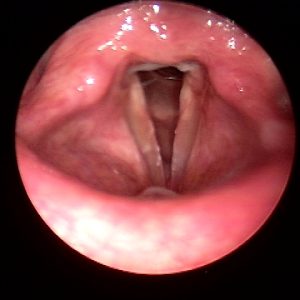Reflux laryngitis happens when stomach acid travels into the throat and irritates the vocal cords, leading to inflammation, hoarseness, and discomfort. This condition is different from regular acid reflux (GERD) because it doesn’t always cause heartburn. Instead, patients often experience symptoms like frequent throat clearing, a persistent cough, a sensation of something stuck in the throat (Globus sensation), and voice changes.
Acute reflux laryngitis may occur occasionally, such as after overeating or drinking alcohol late at night. It usually resolves within a few days with simple changes like avoiding acidic foods, eating earlier in the evening, and sleeping with the head elevated. However, chronic reflux laryngitis happens when acid exposure becomes a long-term issue, leading to ongoing damage to the vocal cords. Over time, this can cause thickening of the vocal cords, constant throat irritation, and difficulty speaking.
Treatment involves dietary and lifestyle changes, such as avoiding spicy, acidic, or fatty foods, quitting smoking, and maintaining a healthy weight. Doctors may also prescribe acid-reducing medications like proton pump inhibitors (PPIs) for long-term control. If untreated, chronic reflux laryngitis can contribute to lasting vocal scarring and permanent voice loss.

Laryngeal Pharyngeal Reflux (LPR)

Severe Laryngeal Pharyngeal Reflux

 YouTube Channel
YouTube Channel
